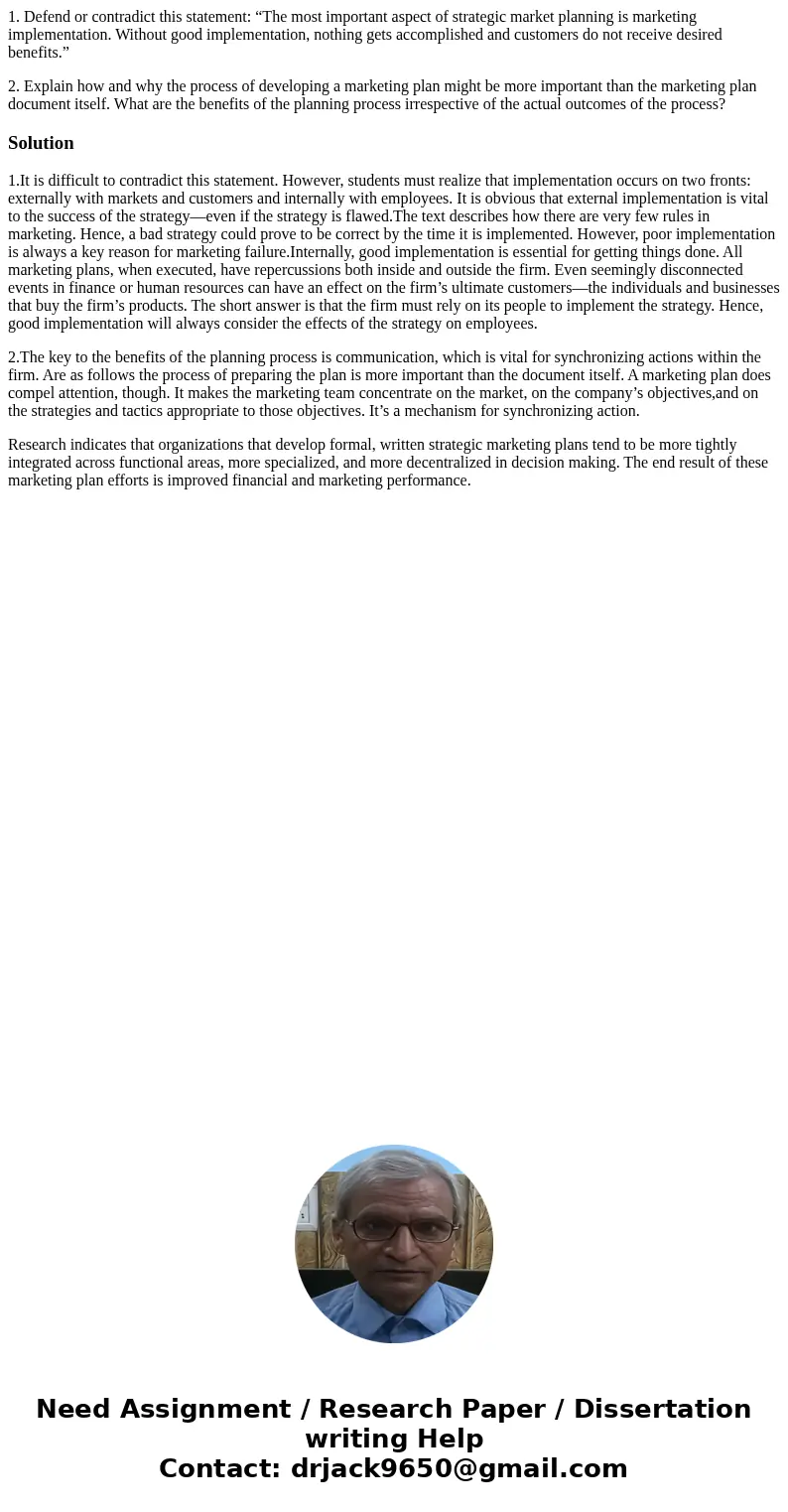1 Defend or contradict this statement The most important asp
1. Defend or contradict this statement: “The most important aspect of strategic market planning is marketing implementation. Without good implementation, nothing gets accomplished and customers do not receive desired benefits.”
2. Explain how and why the process of developing a marketing plan might be more important than the marketing plan document itself. What are the benefits of the planning process irrespective of the actual outcomes of the process?
Solution
1.It is difficult to contradict this statement. However, students must realize that implementation occurs on two fronts: externally with markets and customers and internally with employees. It is obvious that external implementation is vital to the success of the strategy—even if the strategy is flawed.The text describes how there are very few rules in marketing. Hence, a bad strategy could prove to be correct by the time it is implemented. However, poor implementation is always a key reason for marketing failure.Internally, good implementation is essential for getting things done. All marketing plans, when executed, have repercussions both inside and outside the firm. Even seemingly disconnected events in finance or human resources can have an effect on the firm’s ultimate customers—the individuals and businesses that buy the firm’s products. The short answer is that the firm must rely on its people to implement the strategy. Hence, good implementation will always consider the effects of the strategy on employees.
2.The key to the benefits of the planning process is communication, which is vital for synchronizing actions within the firm. Are as follows the process of preparing the plan is more important than the document itself. A marketing plan does compel attention, though. It makes the marketing team concentrate on the market, on the company’s objectives,and on the strategies and tactics appropriate to those objectives. It’s a mechanism for synchronizing action.
Research indicates that organizations that develop formal, written strategic marketing plans tend to be more tightly integrated across functional areas, more specialized, and more decentralized in decision making. The end result of these marketing plan efforts is improved financial and marketing performance.

 Homework Sourse
Homework Sourse